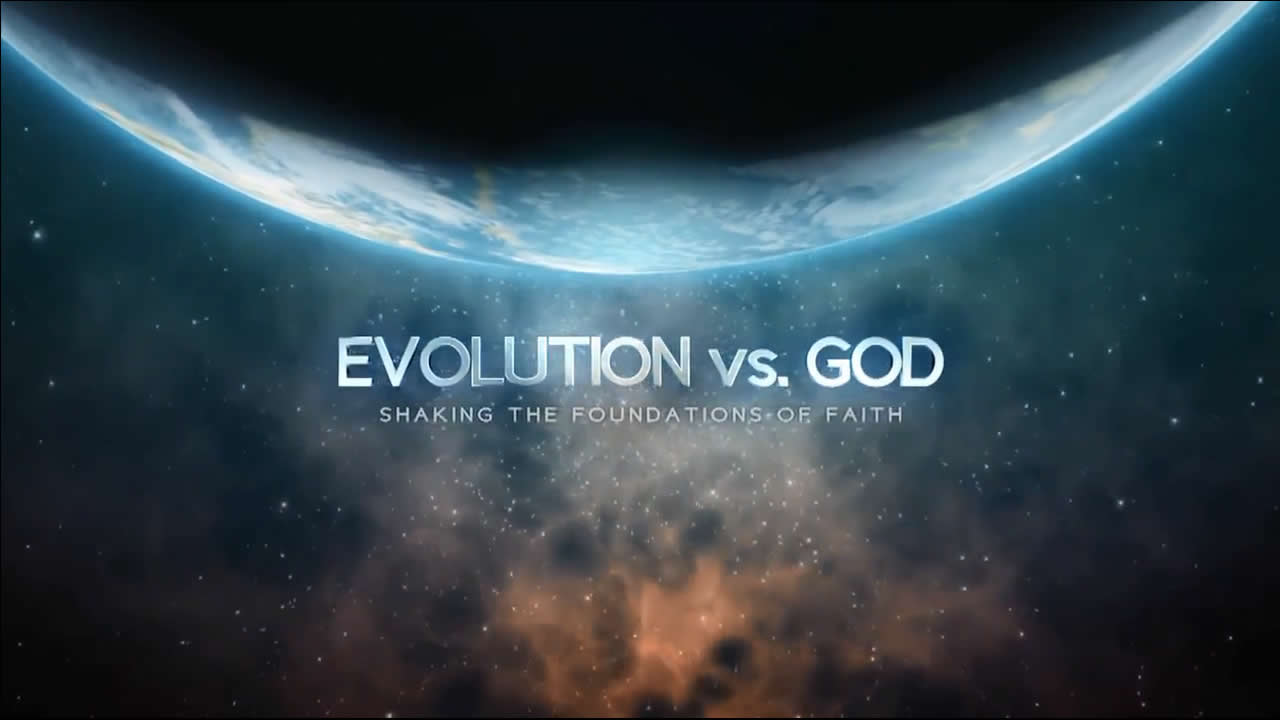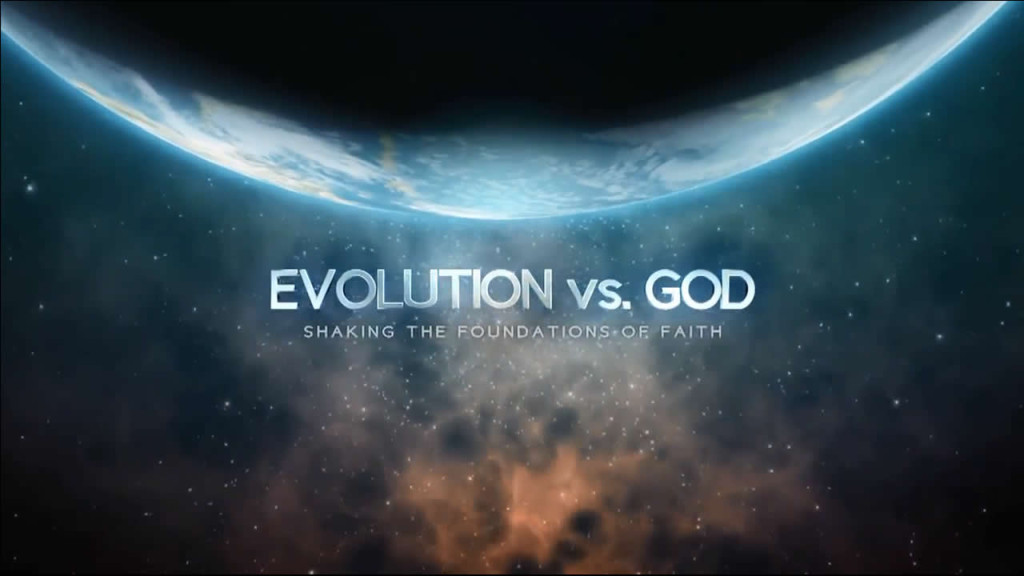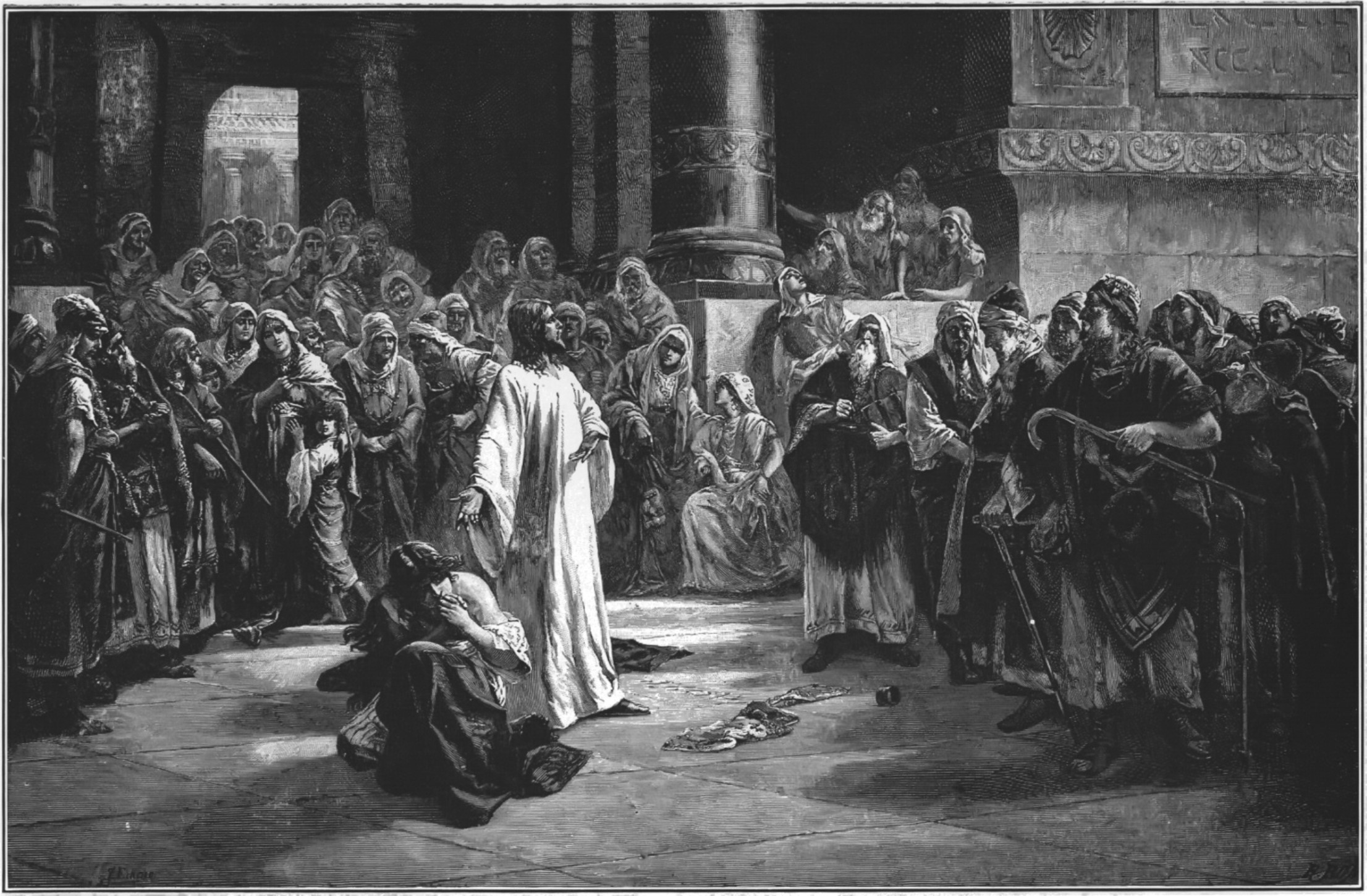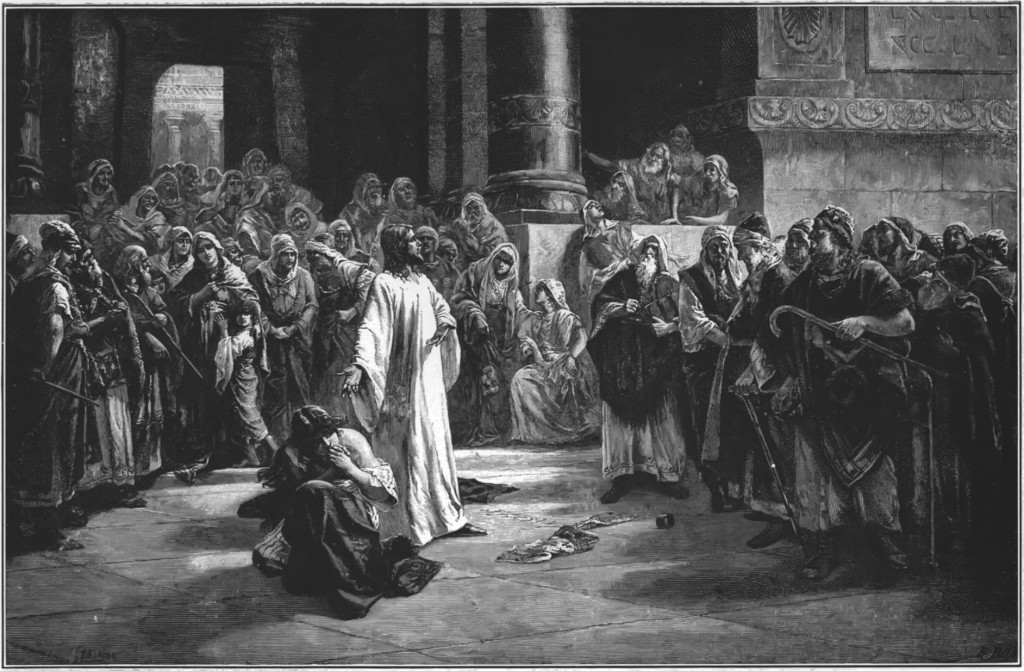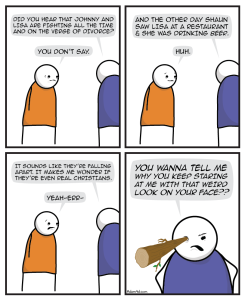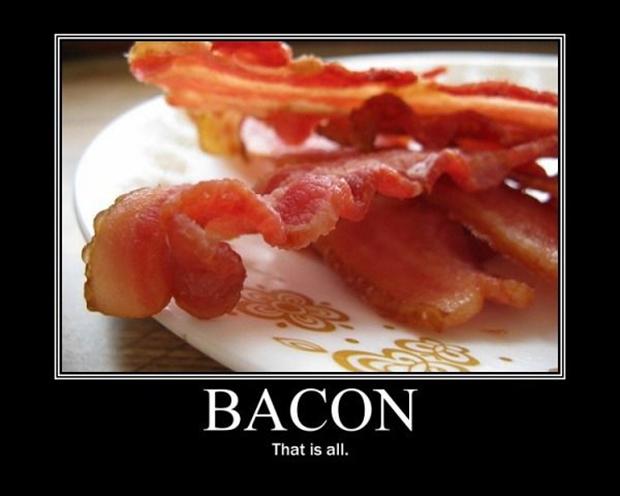This week saw the release of a new internet documentary that is taking the blogosphere and social media by storm. Evangelist Ray Comfort, president of Way of the Master ministries and producer of other documentaries such as 180, has a new assault on Western Civilization. His target this time? The scientific community, specifically that of the evolutionist crowd.
Entitled Evolution vs. God, Ray Comfort promises to debunk evolutionary theory in a way that would make even the most astute scientists squirm. I know Ray’s heart, and I know he earnestly believes this documentary is going to serve the Christian community. Unfortunately, the film neither debunks evolutionary theory and it ultimately harms the Christian community and our witness.
Now, I’ve previously hinted at my position on this topic, and it’s probably best I elaborate slightly before proceeding. I am neither an evolutionist nor creationist, and I am pro-science and pro-conservative faith. I am against the dichotomy that science is always opposed to faith, and I think such arguments are unhelpful and naive. I first began questioning evolution when I was in college, years before I was a Christian, and it was simply because the university’s leading anthropology professor gave a really shoddy explanation of it. Essentially I am not an evolutionist (although I do believe in an old-Earth) because I do not yet see the evidence for it. At the same time, I do not think it is necessary nor is there evidence to suggest a young-Earth literal creation account.
Evolution vs. God is a short film that is approximately 35 minutes long. In the film, Comfort “interviews” 4 university professors (two from UCLA, from USC and another from the University of Minnesota), along with a handful of science students from various disciplines on the campuses. I use the term “interview” lightly, because Comfort often comes off more hostile than not, and only hammers a single question home rather than getting flushed out information on the subject. In addition, almost all of his discussions appear outside, which suggests these conversations aren’t taking place in an environment that is conducive to honest and genuine discussion.
Comfort’s assaults attempt to prove that evolutionists do not have adequate responses nor explanations for the evolutionary theory. He tries to argue that evolution requires belief and faith, in the same way that Christianity requires belief and faith.
I am a little bit disturbed that Ray would equate belief in scientific theory with belief in the most holy, kind and gracious creator of the universe. The Christian faith is “the assurance of things hoped for, the conviction of things not seen” (Hebrews 11:1). The scientific, evolutionist “faith” or “belief” is that their evidence suggests they will still find the missing clues they’re looking for. These are two completely different kinds of faith, and trying to mix the two does injustice to the gift of faith given to us in Christ.
Ultimately, the film fails to deliver on several other levels. These points I will outline below:
- The film only furthers the mentality that science and faith cannot coexist. This only serves to create further separation between the Christian and humanistic/atheist science communities.
- It does not fairly represent the scientific community – four professors and a handful of students are not an accurate representation nor adequate sample size of people to interview.
- Comfort appears to be intentionally making scientists look stupid (how many reasonable answers to his questions are there that we DIDN’T see?).
- Comfort employs bullying tactics when he tries to force the idea that atheists like evolution because it gives them an excuse to be sexually immoral.
- The film ultimately hurts witness with the scientific community.
Every good debater knows that to have a fair debate, one must represent the opposing side in its strongest and most accurate forms. Otherwise you are simply presenting a straw-man. Comfort does not present evolutionary scientists in their strongest form, and instead paints the picture of brainless scarecrows from Oz. It would be just as easy – if not easier (given the average Christians abysmal Biblical literacy) – to make a similar film about Christians who can’t answer the questions of an atheist. We wouldn’t want to see a film like that about us, so why would we do that to others?
Similarly, humanistic/atheist scientists are going to watch this film and only become more upset and frustrated towards the Christian community. For most scientists who see this film, this is only going to alienate them and further harden them towards hearing the gospel in the future.
To be fair to Ray, I think this film does deserve some credit in that it may show that many students and people buy into evolution without understanding it for themselves. This is a similar attack that is often levied on lay-Christians for not knowing their Bibles, so now we begin to see that the same might be said for the average believer in evolution.
In closing, I want to make it clear that I am not attempting to tear Ray Comfort down nor question his ministries. I don’t doubt the countless people who have heard the gospel through his evangelism, and I am greatful for his service to the Kingdom. However, as Christians I think it is necessary for us to be aware of when we are betraying Biblical practices for worldly obediences. Sadly, I think this film ignores Biblical premise for treating others as we’d like to be treated, and instead allies with the worldly desire to tear down an idea simply for the sake of disagreement.
We can do better than this.
“Don’t judge me!”
“Christian’s aren’t supposed to judge!”
“Judge not, lest ye be judged!”
Do any of these sound familiar? The above sayings are a few common examples of all-too-often used statements from people who either reject the entirety of the Christian faith, or some of it’s key tenets. Just look at any public discussion – specifically online – where Christianity comes up, and such statements run rampant. But are these sayings accurate? Does Christianity, specifically Jesus himself teach that we aren’t to judge one another?
The truth is, everybody want’s Jesus on their side. We live in an age where the majority of the population is Biblically illiterate, and rather than investigate what they hear for themselves they trust the first thing they hear that already agrees with their beliefs. Those who hold to the belief that Jesus’ followers aren’t to judge anyone will often reference either John 8:7 (“Let him who is without sin among you be the first to throw a stone at her.”), or Matthew 7:1 (“Judge not, that you be not judged.”). From a plain reading, one might conclude that Jesus did in fact teach that his followers are not to make any judgment whatsoever. The Bible has a lot to say about judging one another – but since even non-Christians like to quote Jesus to make their point, let us look specifically at these verses in their appropriate contexts to see what Jesus really had to say about judging people.
The Terms
Before we continue, we need to define what it means to even judge someone or something. The classical view of “judgment”, that is the one that exists in the dictionaries and was the understanding in society up until the post-modern era, says this:
- to form an opinion about through careful weighing of evidence and testing of premises
- to determine or pronounce after inquiry and deliberation
- to hold as an opinion
- to form an opinion
Inc Merriam-Webster, Merriam-Webster’s Collegiate Dictionary., Eleventh ed. (Springfield, MA: Merriam-Webster, Inc., 2003).
By classical standards, to judge someone or something merely means to form an opinion about the object or person in question. Only in our post-modern context does this word carry a negative tone to it – where casting judgment is wrong if it offends someone, or disagrees with something they do or say. We like judgment when it makes us feel good – if we do well on something and we get complimented, we love judgment! However, when people don’t think we did something right or disagree with our actions, all of a sudden we hate judgment and we start yelling at people.
For the remainder of this article, I will be using the classical definition of judgment.
John 8
Let us dive deeper into the passage from John 8. The first key to examining any verse in the Bible is in what context does it fall. I can take any verse out of the Bible and make it say anything I want, the question is – is that what the verse meant in it’s original context?
Starting in verse 1 of chapter 8, Jesus is on his way to the temple. As he was teaching there, the scribes and the Pharisees (the legalistic teachers of the law who were always trying to undermine Jesus and eventually got him placed on the cross) bring a woman to him who was caught in adultery. In verse 4 they say to him “Teacher, this woman has been caught in the act of adultery. Now in the Law Moses commanded us to stone such women. So what do you say?”
I can only imagine the tension of this encounter. Every time the Pharisees encounter Jesus, they try to catch him in a trap and get him to contradict the law of Moses. It always amazes me to see how Jesus responds, truly showing the ignorance of us petty humans and how we always try to take control of everything. In verse 6, Jesus bends down and began to write with his finger in the ground (Nobody knows for sure what he wrote, as the passage does not say. For you Bible nerds out there, check out Jeremiah 17:13 for a pretty strong connection to say that Jesus may have been writing their names in the sand). As the Pharisees and scribes continue to speak, Jesus responds with the classic go-to line “Let him who is without sin among you be the first to throw a stone at her.”
John’s gospel goes on to say that when they heard what Jesus said, they began to walk away one by one. Left with merely the woman before him, this encounter concludes with Jesus telling the woman “Neither do I condemn you; go, and from now on sin no more.”
Before we draw conclusions from what this passage means, let’s examine the passage from Matthew as well. With both stories in view, our conclusions will make much more sense.
Matthew 7
This passage in Matthew begins with our verse in question right away. Starting in verse 1, “Judge not, that you be not judged…” As we said above, it is absolutely imperative that we take this verse in context and read what the rest of the passage has to say. I will put the remainder of the passage below:
2 For with the judgment you pronounce you will be judged, and with the measure you use it will be measured to you. 3 Why do you see the speck that is in your brother’s eye, but do not notice the log that is in your own eye? 4 Or how can you say to your brother, ‘Let me take the speck out of your eye,’ when there is the log in your own eye? 5 You hypocrite, first take the log out of your own eye, and then you will see clearly to take the speck out of your brother’s eye.
The Holy Bible: English Standard Version (Wheaton: Standard Bible Society, 2001), Mt 7:2–5.
Let’s skip to verse 3, and work our way back to verse 2. Verses 3-4 use a speck/log analogy; what Jesus is saying here is that we should not seek to judge a sin in someones life if we struggle with that sin ourselves. As an example, it would be wrong for me to tell my friend to stop lusting after women if I have a deep pornography addiction. Another example would be if I stored up all of my money for myself and gave none of it away to charity and the church, and then told someone else that they weren’t using their money wisely. I would be telling someone to remove the speck from their eye while I had a giant log in mine. Verse 5 tells us that it is hypocritical judgment that Jesus is speaking about. In fact, verse 5 actually tells us to wage war on and confess our own sin before we try to tell someone else they have a similar problem. Finally moving back to verse 2, we see that Jesus is talking about hypocritical, unrighteous judgment. It is the level of unrighteous, undue judgment that we place on another that God himself will judge us.
Conclusions
We could look at a number of passages from the gospels and see what Jesus has to say about judging others (and I could write 5 more posts about what the rest of the Bible has to say about judging others). In numerous passages, such as Matthew 18:15-20 or John 7:24 righteous judgment is actually encouraged. It is through the lens of others that our sins are often made known, and this is the way God has set up his church. It is necessary for us to surround ourselves in a community of other Christians, as we are to admonish and exhort one another daily to follow after Christ. This is to be done in love, as we confess our sins to one another and pursue holiness.
For brevity’s sake, let’s analyze Matthew 7 and John 8 together now that we’ve examined them in context. Once fully understood, it is impossible to conclude that Jesus is saying not to cast any opinion or judgment on another. What Jesus condones is hypocritical, blinded judgment where we point fingers at others while inside we are completely muddy sinners. In John 8, Jesus himself judges the adulterous woman by telling her to “go and sin no more”. That is, do not continue to make a habit of your old sinful ways, but now live a life pursuing holiness.
In John 8 we also get the beautiful picture of the gospel: “I do not condemn you”. Oh, how sweet the words! As incredibly jacked up human beings who break God’s laws daily, we all deserve consequence and condemnation for our sin yet because of the cross there is none for those who are in Christ. How deep the fathers love for us! When we see such love, how can we do anything but respond to the call to go and put our sin to death?
Through all of this, my exhortation to the Christian is this: please do a deep and thorough heart examination before you go and point out the sin of others. Our actions, when they reek of hypocrisy, are laughable to those whom we try to live as an example to. These words aren’t just for you, they’re for myself.
For your Friday: Five comparisons between cults and Christianity.
1. A cult will give you a set of rules and things to do to achieve special status or salvation.
Christianity says: “For by grace you have been saved through faith. And this is not your own doing, it is the give of God.” – Ephesians 2:8
There is nothing we can do to achieve right standing before God.
2. A cult will give you a set of requirements you must keep to maintain your status in the group.
Christianity says: “Come to me, all who labor and are heavy laden, and I will give you rest.” – Matthew 11:28
Working to maintain our status or salvation is a false idol that leads to fatigue and a tired soul.
3. A cult will tell you not to associate with those outside of your group who have rejected your message – including your family.
Christianity says: “But I say to you who hear, Love your enemies, do good to those who hate you, bless those who curse you, pray for those who abuse you.” – Luke 6:27-28
Christians must actively engage and love those outside the church.
*Editors note: The point I am communicating here is not that all those outside the church are our enemies. What I am attempting to communicate here is that if we are to love EVEN our enemies, and pray EVEN for those who would seek to abuse us, then certainly we are to love and engage anyone outside the church, enemy or not.
4. A cult will claim special revelation that is only achievable by joining their group.
Christianity says: “When the Spirit of truth comes, he will guide you into all the truth, for he will not speak on his own authority, but whatever he hears he will speak, and he will declare to you the things that are to come.” – John 16:13
The Holy Spirit is given to all who believe, not those who give a certain amount of money or do certain things. Jesus is the Way and the Truth. Anyone who claims special revelation outside of Christ is leading you astray.
5. A cult will deny either the work or deity of Jesus Christ.
Christianity says: “No one who denies the Son has the Father. Whoever confesses the Son has the Father also.” – 1 John 2:23
“But when Christ had offered for all time a single sacrifice for sins, he sat down at the right hand of God…For by a single offering he has perfected for all time those who are being sanctified.” – Hebrews 10:12, 14
Christ is the Son of God, who has made a one-time sacrifice for all sin.
As readers of this blog, there is something you should know about me: I love bacon. I love it by itself, I love it with eggs. I love it on a sandwich, and I love it wrapped around hors d’œuvres at March Madness parties (it is, in fact, the best part about any sports party).
This weekend my girlfriend made the most amazing bacon-cooked entree I’ve had in my whole life. Seriously, it was out of this world. Every bite melted in my mouth, and the combination of the bacon, garlic and chipotle peppers concocted a flavor that was phenomenal.
Being the complete nerd that I am, I couldn’t help but think about the relationship between bacon and my faith as a Christian. Which naturally led to me thinking about what it must’ve been like to be held in bondage under the law as the Jews once were (and many still are). From there I began to think about how many times in our current culture I’ve heard Christians being blasted as hypocrites for eating pork (and/or shellfish). After all, doesn’t the Bible say we can’t eat them? The common analogy I hear is that Christians treat the Bible as if it is trail-mix, picking and choosing the parts that we like or don’t like. We’ve all seen it right? The email-chains being forwarded around about all the commands in the Bible Christians don’t keep (especially those from Leviticus), the blasts on Facebook about how we’re hypocrites and Jesus just wants us to be nice to one another (is a half-truth still truth?).
Two things sadden me about this. The first is that our culture around us can read the scriptures and completely miss what the Bible is about. Truly, “the word of the cross is folly to those who are perishing” (1 Corinth. 1:18, ESV). Secondly, how Bible-illiterate is our church that we cannot quickly and easily respond to what our culture would like to think is often the “nail in our coffin”? Too many times have I seen Christians brought on talk shows only for this issue to come up, and they just have no response.
The irony is that the non-Christians who claim to hate religion, and are telling Christians we should be keeping the dietary laws, are understanding the Scriptures the same way the religious leaders did whom Jesus repeatedly said were wrong.
I titled this post “Bacon, Jesus, and the New Covenant”. Not only are these three of my favorite things, but they’re quite closely linked.
Bacon and the Old Covenant
It is true, the Bible twice explicitly forbids the eating of swine. Both Leviticus 11:7 and Deuteronomy 14:8 speak as such. “And the pig, because it parts the hoof but does not chew the cud, is unclean for you. Their flesh you shall not eat, and their carcasses you shall not touch” (Dt. 14:8, ESV). There are three reasons we can look at that would explain the reasoning for this law.
The first of these is that it was simply for hygiene reasons. This view would say that pork can be contaminated with worms and bacteria, so the prohibition might have been based on the fact that eating pork can lead to illness. Since this only occurs occasionally, and can happen from eating other meats, it is likely that this is not the best explanation.
The second explanation would say that the prohibition of swine has to do with the pig’s association with certain Babylonian, Syrian and Egyptian gods (ISBE). However, this theory does not explain why other animals were forbidden (Leviticus 11:4-6, Deuteronomy 14:7).
The third reason, and the most probable, would be the pigs symbolic representation. The International Standard Bible Encyclopedia (ISBE) says it this way:
“The standard sacrificial animals of the pastoralist Israelites were sheep, goats, and oxen, which all had in common cloven hooves and the fact that they chewed the cud (cf. Lev. 11:3). God had chosen certain animals for sacrifice in the same way that He had chosen one nation, Israel, to be His holy people. As God’s people Israel was to reflect His holiness (cf. vv 44f) by restricting its diet to those animals that fitted the pattern of the animals chosen by God for His “diet” (namely, cloven hooves and chewing the cud). The pig is “unclean” because it meets only half the requirements: it has cloven hooves but does not chew the cud (v 7).”
Up to this point, eating bacon-cooked ribs seems like a pretty serious offense doesn’t it? So why then is it not hypocritical for Christian’s to partake in this meal?
All Foods are Declared Clean
The problem with stopping at the end of our discussion above is it would not do the Scriptures justice as to what it says to the entirety of the “bacon-problem” (I don’t like to see these two words so closely associated). The coming of the Messiah, Jesus Christ, brought in a new age – and with him a new covenant (more on this later). So much of what Jesus spoke to when he came to live among us was the people who kept the old law religiously, yet didn’t understand the purpose of the laws at all. On the outside, many Jews appeared to be the most holy of peoples, but on the inside they were completely bankrupt. Jesus calls these people white-washed tombs – they look clean on the outside, but are full of everything unclean on the inside.
We see this flushed out in the Gospel of Mark, chapter 7. Jesus had just finished telling a parable to the Pharisees and Jews, and he finished his time with the people by telling them “Hear me, all of you, and understand: There is nothing outside a person that by going into him can defile him, but the things that come out of a person are what defile him” (Mark 7:14-15, ESV). Confused by his teachings, his disciples continue to question Jesus further. Jesus goes on to explain “Then are you also without understanding? Do you not see that whatever goes into a person from outside cannot defile him, since it enters not his heart but his stomach, and is expelled? (Thus he declared all foods clean.)” (Mark 7:18-19, ESV). You see, the point Jesus is trying to make is nothing we can physically do makes us clean in any way. The religious law-keepers at the time claimed that not eating pork made them cleaner than others. Jesus want’s to get at your heart and root out the wickedness that inhabits it – he isn’t concerned with what you eat. After all – as verse 19 says literally in the original Greek – what we eat goes into our stomach and then out into the latrine. Jesus wraps up his point by telling us the things that he is concerned with – what naturally dwell in our hearts: “For from within, out of the heart of man, come evil thoughts, sexual immorality, theft, murder, adultery, coveting, wickedness, deceit, sensuality, envy, slander, pride, foolishness. All these evil things come from within, and they defile a person.” (Mark 7:22-23).
This point is again hit on in the book of Acts. Peter has a vision from God – in it there is a white sheet, and on this sheet are all the animals, reptiles and birds of the air. Peter was then commanded to rise, kill and eat. Peter objected, saying that he has never touched a common or unclean animal. He is then instructed “What God has made clean, do not call common.” (Acts 10:15, ESV). Here again we see that there is something different now that Jesus has come – God’s followers are now allowed to eat all animals under creation (there is a deeper meaning behind this passage, concerning taking the gospel to the gentiles – but it is not relevant to this discussion).
Finally, in Paul’s letters to the Romans we actually see that it would be wrong for us to continue holding to dietary restrictions under the law. In chapter 14 the Apostle Paul tells us “One person believes he may eat anything, while the weak person eats only vegetables. Let not the one who eats despise the one who abstains, and let not the one who abstains pass judgment on the one who eats, for God has welcomed him…Everything is indeed clean..” (Romans 14: 2-3, 20a, ESV). For the Christian Paul says, we would actually stand weaker in our faith if we held to dietary restrictions.
It’s clear from a reading of the entirety of what the Scriptures have to say about pig that it is indeed lawful for a Christian to enjoy a bacon cheeseburger. Before, we alluded to the term “New Covenant”. None of what we have discussed so far would make any sense without the New Covenant, and it is only under the New Covenant that we come to understand the point Jesus is driving home.
The Beauty of the New Covenant
The Bible is full of what we call “covenants”, that is, a promise made between God and His people. We see multiple covenants in the Old Testament between God and the people of Israel. After the fall of man, the people of Israel are put into a law-abiding relationship with God. This is where we get the Ten Commandments, the dietary restrictions, the restrictions of the sabbath, and so on. If we read the Old Testament in it’s entirety we get a crazy cyclical picture of a chosen people of God who continually fall into grievous sin, God punishes them, the people cry out to God, he saves them from their predicament, he gives them more laws to abide by to keep them from falling back into sin, but then they just break the new commands and do it all over again. What we see from this picture is that no matter how hard we may try we always fail to live up to God’s standards. To account for this, the people of God routinely had to make sacrifices to atone for their sin. There were restrictions on this too – the animal was often a lamb, it had to be male, containing no blemishes – basically, a perfect lamb. To account for their sin, someone or something had to take their punishment. “Indeed, under the law almost everything is purified with blood, and without the shedding of blood there is no forgiveness of sins” (Hebrews 9:22, ESV).
Fast forward a couple thousand years. It’s first century Jerusalem, and for hundreds of years the chosen people of God have been religiously keeping their laws. The Pharisee’s of the time – the teachers who believed their righteousness came from how well they kept the law but were completely corrupt – held complete power over the Jewish people. Out of nowhere, a young man speaking with authority walks onto the scene telling them they’ve gotten it all wrong. Not only is he speaking with authority and calling out these teachers of the law, but he’s performing great miracles. He’s claiming the ability to forgive sins. Most importantly, he’s claiming to be God.
With him comes a new message: he is going to usher in the New Covenant. The law was given to us to reveal our sinful hearts – not to keep it like a checklist and then consider ourselves clean. When the law says do not murder, it is meant to show us the reality that the hatred in our hearts towards others is murder (Matthew 5, 1 John 3). Similarly, when we even so much as lust after others, we’ve already committed adultery (Matthew 5:28). God’s standards for us are so high that it is impossible for us to keep them. Under the New Covenant, Jesus fulfills the law-restrictions of the old (Matthew 5:17). Under the old law, we see the weight of our sin and how wretched we are. Culture wants to tell us that we’re all basically good, in reality we are all quite bad.
Until we see the weight of our sin under the old law, we will never see the glory, richness and beauty of life in Christ.
This is why the New Covenant is so amazing: while we were under bondage of the law, while we were sinners under it, Christ died for us. (Romans 5:8). The law brings death, but the Spirit of God through Christ brings life (2 Corinthians 3:6). Don’t you see? Christ is the perfect, spotless, blameless lamb! We are no longer captive to the law, sin and death because he took the punishment that we deserved once and for all. It’s the most magnificent thing that has ever happened in the entirety of time, and he did it for you and me.
***Side-note***
It would be wrong for us to conclude that we can therefore live a life not in pursuit of holiness. Yes, we are free from the bondage of law and the ceremonial commands that came with it, such as dietary restrictions and special days of observance. But the moral law – how we are to act in our relation to God and our relation to others – remains intact. We are no longer burdened with making ourselves right before God when we sin; Christ has done that for us. It is however still the obligation of every Christian to pursue a life of holiness, which we can only do through Christ and by the power of the Holy Spirit.
***End Side-note***
—–
Quite a bit of exposition from a plate of bacon-cooked ribs.
Christian, if you’re reading this, I hope this was a blessing to you. I hope this will help you not only articulate the Scriptures teachings to this common objection, but that it will also be a reminder of your sinfulness, and your captivity under the old law – and the grace you’ve found in Christ. Do not be like those white-washed tombs.
Non-Christian, I hope this was a blessing to you too! At the very least, it is my hope you learned something about the Christian faith you didn’t know before. Maybe it will be an exhortation to you to dig deeper into sin, grace and the beauty of what Christ did on the cross.
Questions, comments? Sound off below!
